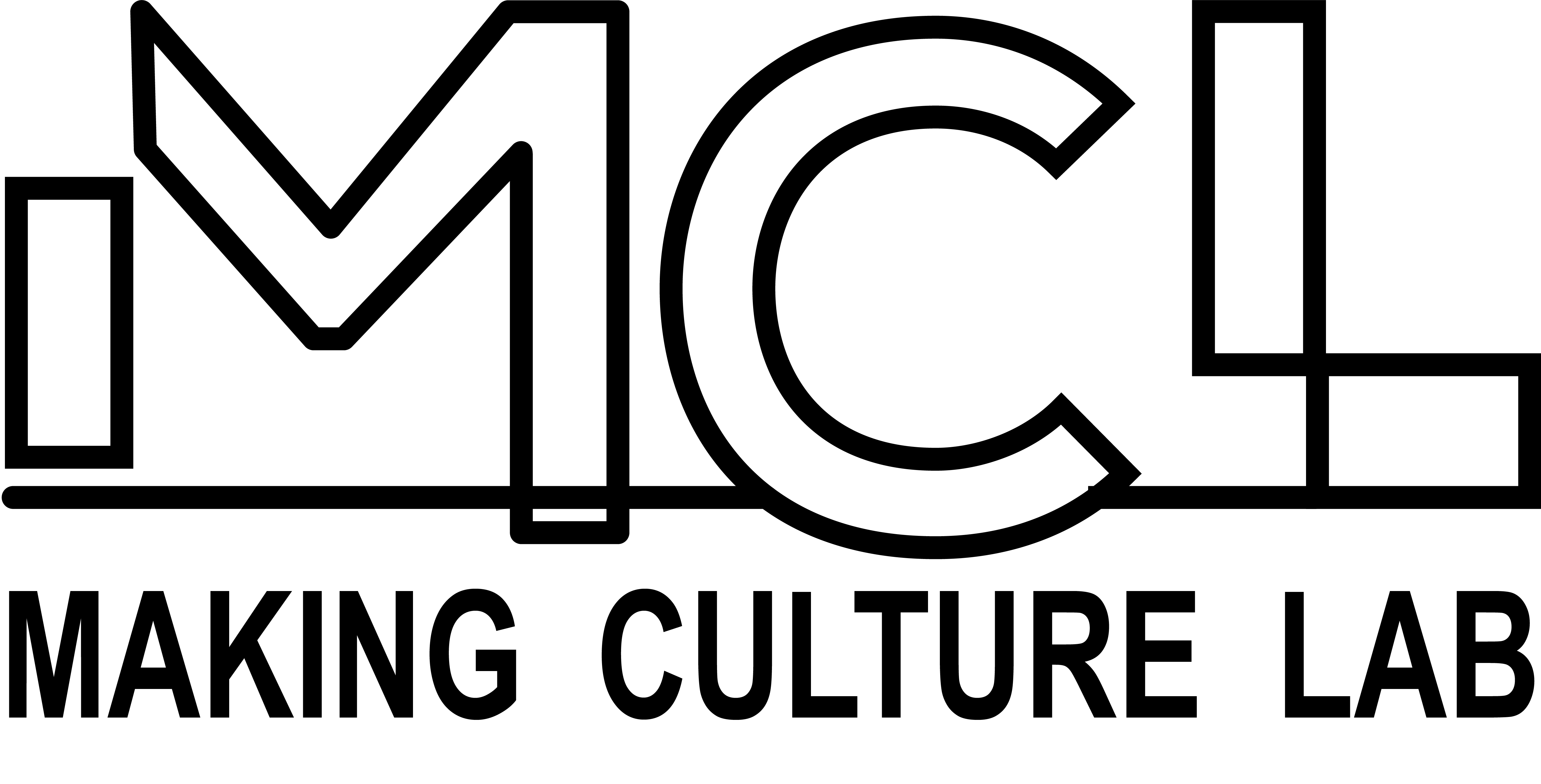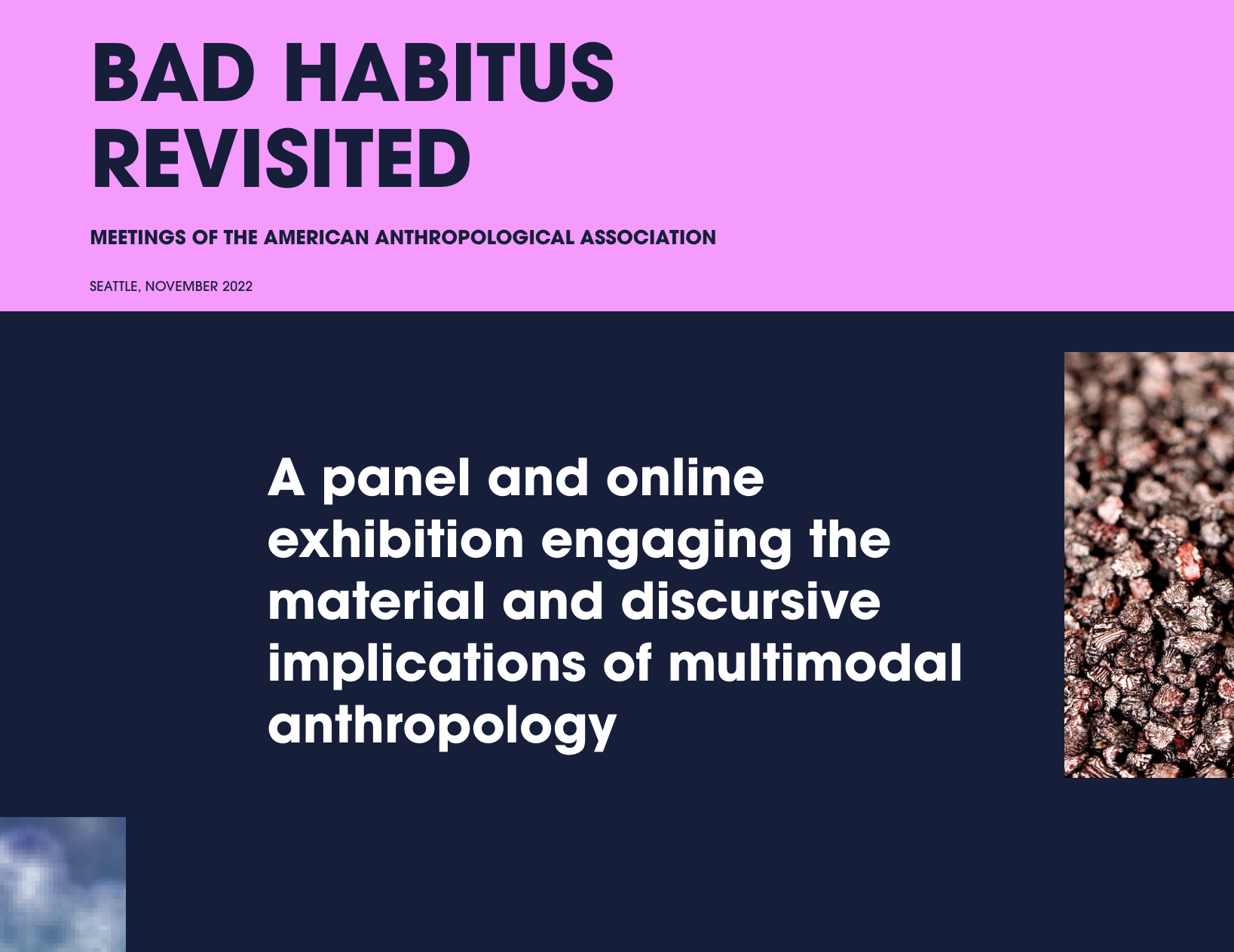Bad Habitus Revisited – Meetings of the AAA, Seattle, 2022
Kate Hennessy, Stephanie Takaragawa, and Trudi Lynn Smith have organized a round table and online collection of research-creation works for the 2022 Meetings of the American Anthropological Association in Seattle.
See the website here.
Continuing in the trajectory to “expand beyond Eurocentric, colonialist, and ableist ways of doing what we do, with or without technology” (Chin 2017: 541), we seek to re-engage a conversation from half a decade ago (Takaragawa et. al. 2019) towards more substantive academic engagement. Five years ago we asked: How do technologies work, how are they produced, by whom, and under what conditions? Can multimodal anthropology address technological democracy in an era where it is largely agreed that the internet has failed to increase or produce democratic conditions? What does multimodal anthropology fail to recognize? How does the use of increasingly ubiquitous new technologies in anthropological praxis subsequently elide issues of power, resource equity, and representation?
For this panel and a companion online exhibition we invite presentations of new works and perspectives critically engaging multimodal methodologies and frameworks to expose and disrupt deeply embedded knowledge and power hierarchies while also making space for ways of knowing otherwise. As we have previously argued, although the multimodal in anthropology may challenge dominant modes of authorship, expertise, capacity, and language, there is nothing inherently liberatory about this paradigm. Following our call for an anthropology of the multimodal (Smith and Hennessy 2020) that may use research-creation––emergent and hybrid artistic-scholarly methodologies (Loveless 2015) that include art-led and practice based research––we seek participation in this session and online exhibition from artists and scholars whose works interrogate the material and discursive implications of multimodal anthropology as embedded within technoscience.
Building on Sara Ahmed’s (2007) concept of bad habits and Pierre Bourdieu’s (1988) habitus, we identify that multimodal anthropologies run the risk of reproducing and reinforcing a problem of bad habitus. Multimodal anthropologies can just as easily reinforce existing power structures by making recourse to techno-fetishism or by dressing up neocolonial practices of extraction, inclusion, and appropriation in new language. Mobilizing the multimodal in the service of anthropology we must bear in mind its position vis-à-vis global capitalism and the reproduction of social forces that continue to reinforce cultural imperialism, neo-colonialism, and oppression. Therefore we invite submissions that investigate and represent what multimodal approaches to knowledge production privilege and what they strategically deny. Presenters in this session ask questions such as (but not limited to):
-
How are anthropologists today focusing critical attention on the socio-technical infrastructures that undergird multimodal tools and technologies being used across the discipline?
-
How are new technologies (broadly considered) being studied and used by anthropologists and artists in practice to draw attention to their bad habitus, including relations of power within the discipline and its institutions?
-
How can research-creation and art-led ethnographic methodologies support an emergent anthropology of the multimodal that accounts for the entanglements of new technologies in anthropology and technoscience?
What does an anthropology of the multimodal using research-creation as a methodology look, sound, or feel like?
Organized by Kate Hennessy, Stephanie Takaragawa, and Trudi Lynn Smith


